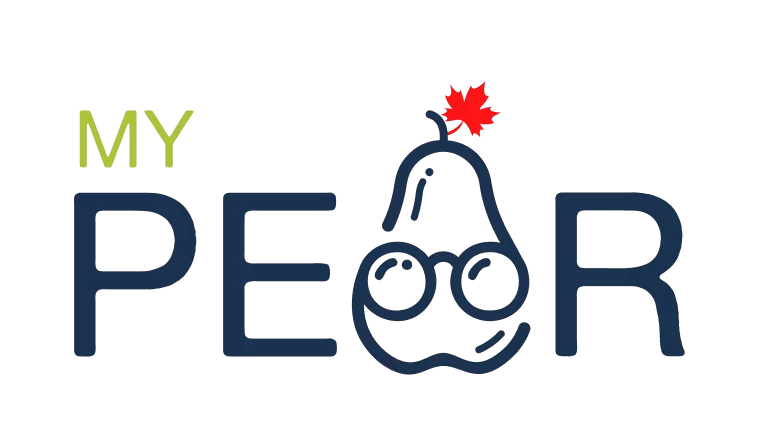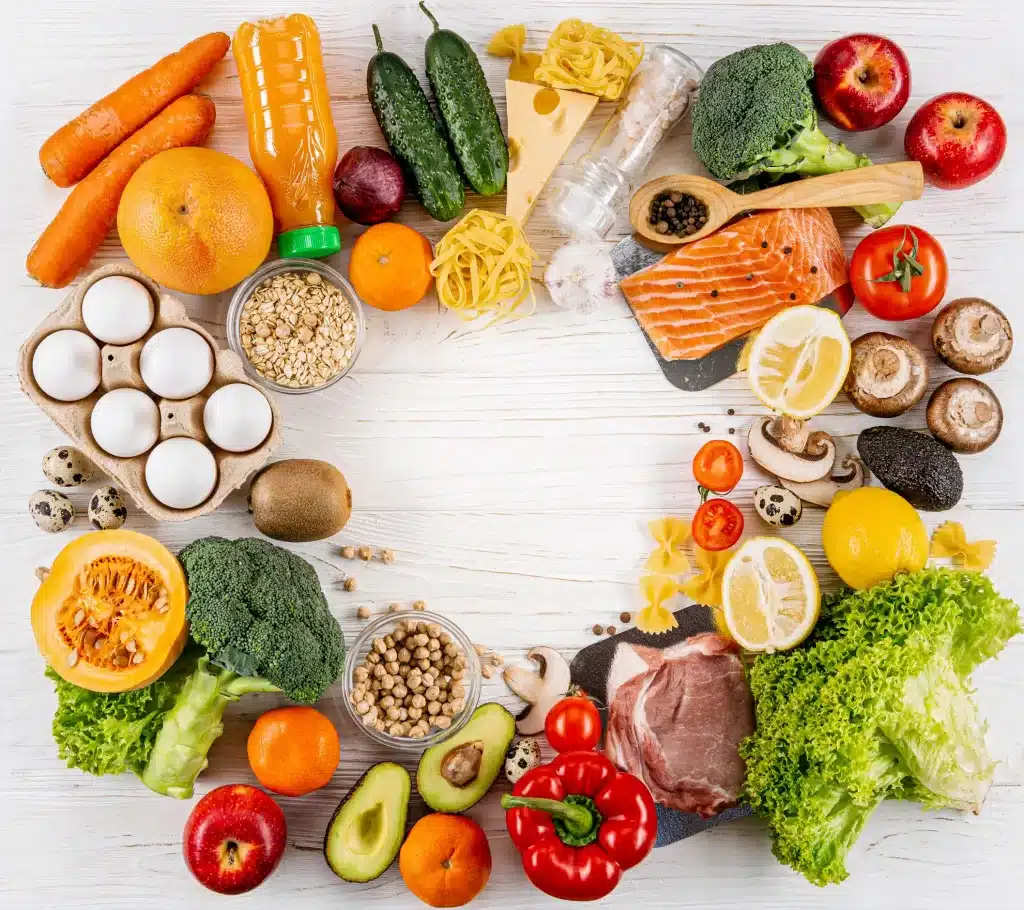Eye Care, Eye Health, Eye Nutrition, mypear, Vision Health Concerns
Myths and Facts About Food and Vision You Need to Know
Myths and Facts About Food and Vision You Need to Know
Are carrots the superhero food for vision? Can specific diets worsen your eyesight? With so much information about nutrition and eye health, it’s tough to distinguish between facts and myths.
Eye health isn’t just about genetics or screen time—nutrition also plays a pivotal role. But not everything you hear holds up to science.
This blog dives deep into common myths, facts, and actionable insights about how what you eat impacts your vision. We are here to clear up myths about carrots and eyesight. We also debunk common food fads for eye health. The truth is, you need to take good care of your eyes.
Does Eating Carrots Improve Your Eyesight?
Carrots are high in beta-carotene. This is a type of vitamin A that is important for good vision. Vitamin A is crucial in producing rhodopsin, a pigment in the retina that helps you see in low light. However, eating extra carrots won’t give you superhuman eyesight unless you’re deficient in vitamin A.
The Origin of the Myth
This myth started in World War II, when British forces claimed their pilots’ night vision improved from eating carrots. While Vitamin A does support vision, the story was largely a ruse to hide radar advancements.
Carrots are healthy and help maintain vision, but they’re not a miracle food. For better eye health, eat a balanced diet with nutrients like omega-3s, lutein, and zinc.
Debunking Popular Food Myths About Eye Health
Besides carrots, several misplaced beliefs about food and vision persist. Let’s separate the facts from fiction.
Myth #1: Eating Lots of Fish Can Fix Vision Problems
Reality: Oily fish like salmon, mackerel, and sardines are rich in Omega-3 fatty acids, which can help reduce dry eye symptoms and inflammation. While Omega-3s support eye health and may help prevent age-related macular degeneration (AMD), a leading cause of blindness in those over 50, fish is not a cure for all vision issues.
Myth #2: Drinking Carrot Juice Can Give You Perfect Vision
Reality: The beta-carotene in carrots converts to Vitamin A, supporting eye health. However, drinking too much carrot juice or consuming excess beta-carotene won’t give you superhuman vision. In fact, too much Vitamin A can be toxic, causing yellowing of the skin and other health issues.
Myth #3: Eating spinach will completely prevent cataracts.
Fact:Spinach is packed with lutein and zeaxanthin, antioxidants that help protect your eyes from age-related damage. While it won’t guarantee you avoid cataracts, adding spinach to a nutrient-rich diet is a smart preventive step.
Myth #4: Sugar makes your eyesight worse.
Fact: Sugar doesn’t directly harm your eyes, but too much can lead to diabetes, increasing the risk of diabetic retinopathy. Keep sugar in check for your overall health, including your vision.
Myth #5: Blueberries will cure all vision problems.
Fact: Blueberries are rich in antioxidants that support eye health and may reduce the risk of macular degeneration. However, they won’t cure existing eye conditions—think of them as a helpful boost, not a fix.
Nutrition matters for eye health, but over-relying on one “miracle food” will not replace regular checkups and proper eye care.
To better understand the specific nutrients that benefit your eyes, visit MyPear’s Vision Guide on Supplements.
Eye Health and Food Choices
Food trends may come and go, but your eye health deserves attention. Juice cleanses and extreme low-carb diets might claim benefits, but they often fall short. Cleanses provide temporary nutrients, while cutting carbs or fats can deprive eyes of essential nutrients.
For lasting benefits, prioritize nutrient-rich foods like leafy greens, fatty fish, and colorful vegetables to protect and strengthen your vision.
Vision-Friendly Food Facts
Forget fads—stick to whole, nutrient-rich foods for lasting benefits to your eyesight.
- Leafy Greens (Spinach, Kale): Packed with lutein and zeaxanthin to protect your macula from blue light and oxidative stress.
- Fish (Salmon, Mackerel): Rich in omega-3s to prevent dry eyes and macular degeneration.
- Citrus Fruits (Oranges, Grapefruits): High in vitamin C to maintain healthy eye blood vessels.
- Nuts & Seeds (Almonds, Chia Seeds): Full of vitamin E to slow cataracts and age-related vision issues.
- Eggs: A great source of Vitamin A, lutein, and zinc—essential for eye function.
Adding these to your diet supports both your vision and overall health.
The world of nutrition offers many “quick fixes,” but you need to provide your eyes with consistent, science-backed care. Are you looking for credible supplements or eye-care nutrients? Don’t waste time on trends. Check reputable sources, like this guide tailored to nourishing your vision.
Foods You Should Avoid for Better Vision Care
Certain foods can harm your eye health. Cutting back on these may help protect your vision:
- Trans Fats: Found in fried snacks and processed meals, they can affect blood flow to the tiny vessels in your eyes.
- High-Sugar Foods: Candies and sweet drinks can spike blood sugar, raising the risk of diabetes and vision issues.
- Excess Sodium: Too much salt in canned soups or snacks may increase blood pressure, impacting eye vessels.
- Alcohol: Overconsumption can dehydrate you, leading to dry eyes.
Simple Tip
Protect your vision with a balanced diet: eat greens, Omega-3-rich fish, and swap sugary snacks for nuts or antioxidant-rich fruits.
For additional tips, explore the top dry eye solutions from MyPear.
See the Bigger Picture for Eye Health
While carrots, spinach, and blueberries support eye health, the picture is more significant than any other food item. A balanced diet, proper hydration, regular exercise, and routine eye checkups set the foundation for long-term eye wellness.
If you’re wondering where to start, take practical steps by eliminating harmful foods and focusing on scientifically proven, vision-friendly options. Boost your efforts with premium-grade Omega-3 supplements, antioxidants, and artificial tears, all available with expert recommendations at MyPear.
Your Next Move
Don’t wait for vision problems to appear—start building healthy eye-care habits today. For expert-backed solutions and curated recommendations, check out the latest in nutrition for eye health.
Your vision deserves your attention—start caring for it today.
This content has been reviewed by Optometrist Dr. Davinder Sidhu.




